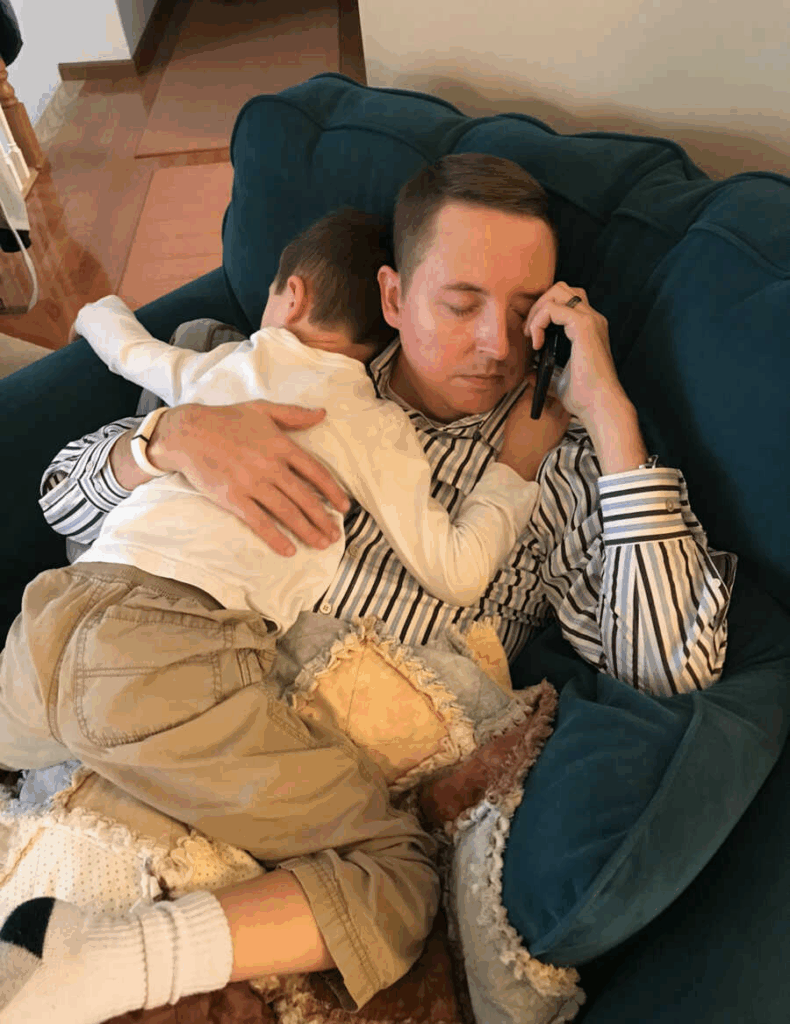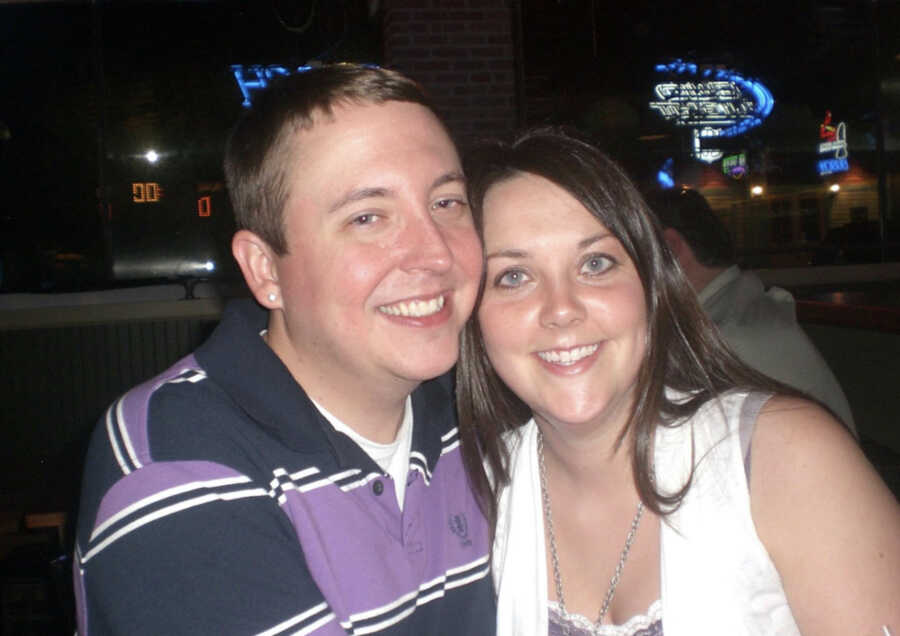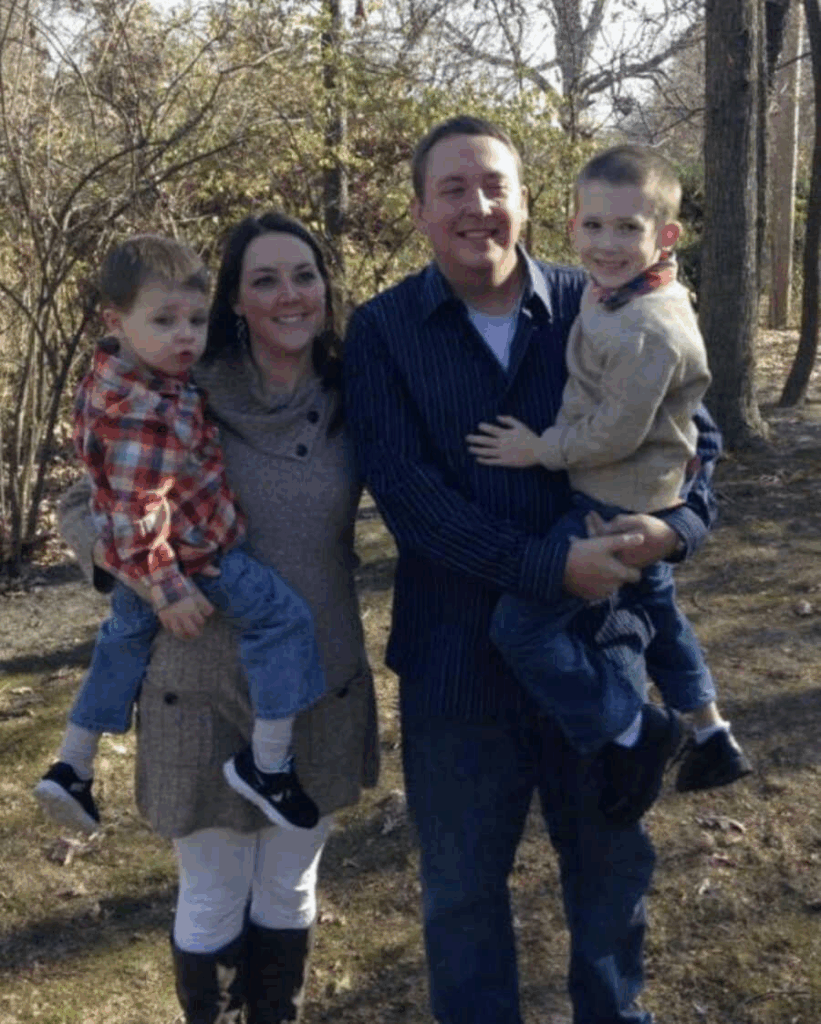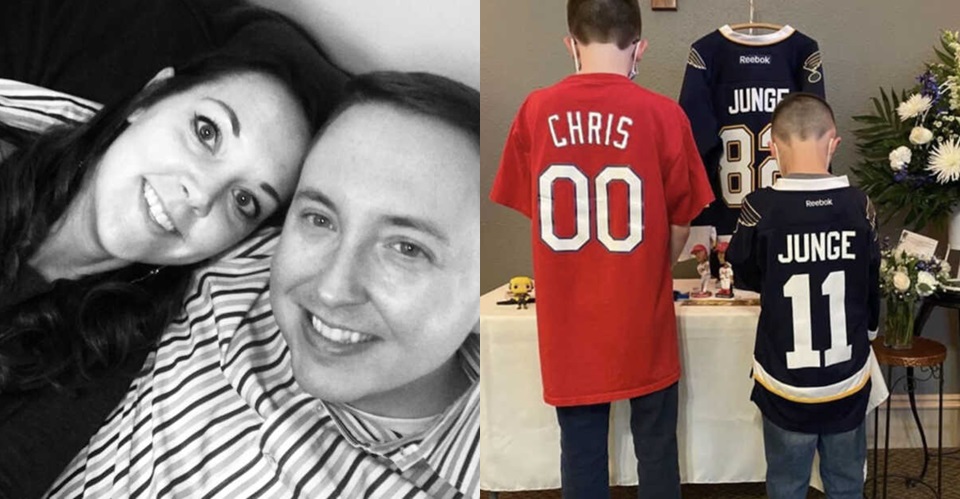She couldn’t cure his disease, but she can break the cycle by staying, telling the truth, and loving her boys into a better tomorrow. Annie is a 40-year-old mom raising two boys, E, 14, and W, who is 11. Their family lives with the aftershocks of addiction. Alcoholism took the boys’ father in July 2020, and even though Annie never drank, the disease almost took her too. She learned how heavy secrets can be and how loud stigma can make people feel small. She tried to keep everything looking fine from the outside while breaking on the inside for years. Before her husband died, she promised him she would tell the truth so others wouldn’t feel so alone, and she has kept that promise.

Chris died on July 2, 2020, on the floor of his childhood bedroom. He was found alone with his little dachshund nearby. The coroner said it was a heart attack caused by long-term alcohol use. Some days, grief twists Annie into wondering if it was also her fault. A few people even blamed her for leaving. She knows she wasn’t always gentle or informed; there were years she believed he was choosing alcohol over their family.
She was young, scared, and unprepared for a disease that changes the person you love. That mix left scars. In October 2019, before he died, she stood beside a moving train and thought about stepping forward to stop the pain. She didn’t step. Her boys saved her life that day. Later, she learned the hardest thing wasn’t stepping back, it was burying her husband.

Their story began in a small town in southern Illinois. They had known each other in high school, started dating in their late twenties, married at 27, and welcomed a second son a year later. Chris was kind and steady, a natural dad to Annie’s older son, whose father was mostly absent. He also drank more than she was used to. When their youngest turned two, the bottom dropped out: Chris lost a job, got a DUI, had a seizure with terrifying hallucinations, and landed in the hospital.
He was detoxing. Two little kids, a mortgage, and a troubled husband became their new reality. Over the next decade, he lost two jobs because of drinking, cycled through hospitals, detox units, and long-term rehab. Home life became chaos. Addiction didn’t care that Chris was educated or once a loving partner; it still burned through their family. Annie learned there are many kinds of loss with addiction: time gone in treatment, broken trust, illness, relapse, divorce, and death is only one of them. She also learned she could not control his recovery. She could only control herself and how she parented.

Their boys carried the burden too: the younger grew anxious, the older pulled away. She and Chris fought more as she became sick from the stress. They divorced just 45 days before he died. A week before his death, something shifted for her in an Al-Anon meeting when she heard that the alcoholic was suffering too. The next day, she saw Chris for the last time. He braced himself on the stair rail, jaundiced and thin, glasses crooked, blue eyes clear with the knowledge of what was coming. In that moment, she saw past the disease to the man and found room to forgive. It was a gift she’s grateful she gave before it was too late.

Recovery in their home is active and daily now. Each of them sees a therapist, and they meet with a family grief counselor. Annie goes to Al-Anon and works with a sponsor. She repeats to herself that she can only save herself and that doing her own work is how she saves her boys. Two years after Chris’s passing, she learned that life can still hold joy. Near the end of Chris’s life, she met Eric. A month into that new relationship, Chris died, and Eric stayed. He held her hand when she told the boys their father was gone, and he has been a steady presence ever since. He didn’t fix them; no one else can, but he stood with them while they worked hard.

Annie shares their story to help other families. If you are the healthy parent in a storm like this, she wants you to stay at your post. Your children need your steadiness more than anything, and your choices can change the path for the next generation. She believes family pain rolls forward until someone turns to face it, and that act brings peace backward and forward in time.












